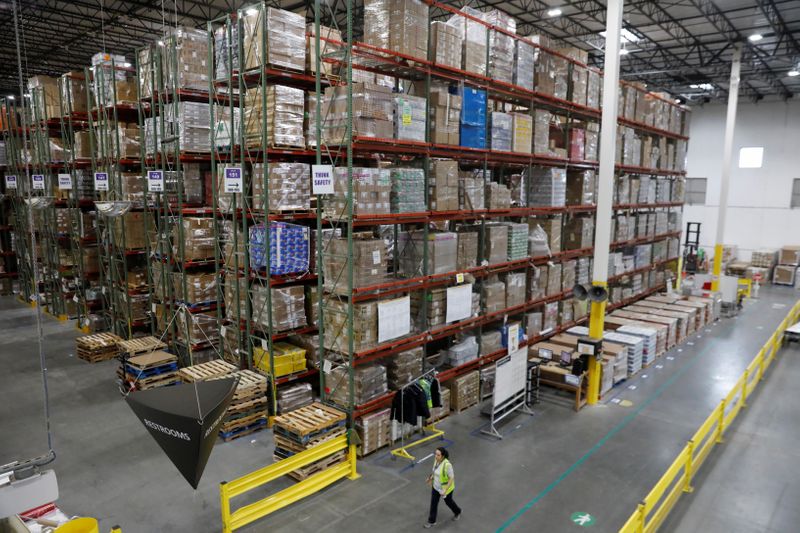By Lucia Mutikani
WASHINGTON (Reuters) -U.S. wholesale inventories increased strongly in April as businesses replenished stocks to meet pent-up demand, but supply constraints could make it harder to maintain the current pace of inventory rebuilding.
The Commerce Department said on Wednesday that wholesale inventories rose 0.8% as estimated last month. Stocks at wholesalers advanced 1.2% in March. Wholesale inventories increased 5.2% in April from a year earlier.
Inventories are a key part of gross domestic product. Economists polled by Reuters had forecast that April’s increase in wholesale inventories would be unrevised.
“There are downside risks for the inventory build,” said Matt Colyar, an economist at Moody’s Analytics in West Chester Pennsylvania. “Supply chain disruptions could become an even bigger problem, choking off producers’ ability to restock depleted inventories.”
Manufacturers are battling shortages of raw materials and labor in the wake of pent-up demand unleashed by the reopening of the economy as vaccinations ease COVID-19’s intensity. The supply constraints are underscored by a global semiconductor shortage, which is undercutting motor vehicle production as well as output of electrical equipment, appliances and components, raising prices and hurting sales of these goods.
The component of wholesale inventories that goes into the calculation of gross domestic product also increased 0.8%. Economists maintained their lofty second-quarter GDP growth estimates, mostly in the double-digit zone, but cautioned that bottlenecks in the supply chain posed a downside risk.
Though wholesale inventories of motor vehicles rose in April, they were down 3.3% on a year-on-year basis. Computer equipment stocks fell 1.1% in April.
Businesses ran down inventories in the first quarter amid a burst in domestic demand. The inventory drawdown subtracted nearly three percentage points from GDP growth last quarter. Still, the economy grew at a robust 6.4% annualized rate after expanding at a 4.3% pace in the fourth quarter.
Sales at wholesalers rose 0.8% in April after accelerating 4.3% in March. At April’s sales pace it would take wholesalers 1.22 months to clear shelves, unchanged from March. That is the shortest period since September 2014.
“It reflects the robust demand as economies reopen, alongside the constraints on inventories amid supply chain disruptions, micro chip shortages, and rising commodity costs,” said Mike Englund, chief economist at Action Economics in Boulder, Colorado.
(Reporting by Lucia Mutikani; Editing by Andrea Ricci)






















